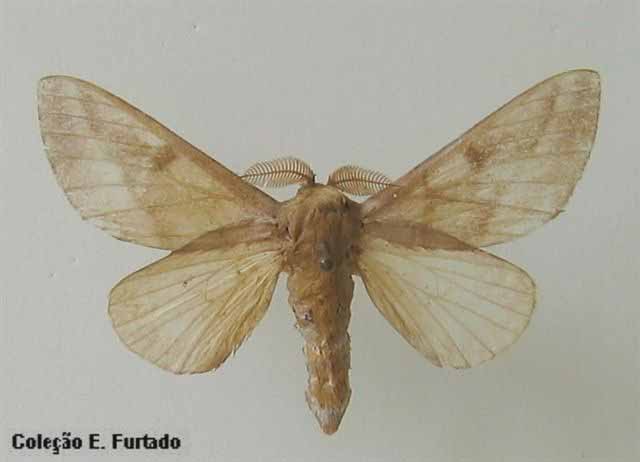JAIBA OF THE WORLD
JAIBA Lemaire, Tangerini & Mielke, 1999
Jaiba kesselringi Paratype male 48 mm,
Mocambinho, Jaíba, Minas Gerais, Brazil,
courtesy of Eurides Furtado copyright

Jaiba kesselringi Paratype male 48 mm,
Mocambinho, Jaíba, Minas Gerais, Brazil,
courtesy of Eurides Furtado copyright
Eggs are translucent and the developing larvae can be seen through the egg shells.
Like all the Ceratocampinae, the larvae are well-endowed with long thoracic "horns" which tend to diminish relative to body size as the larvae progress through successive moults.
Mature larvae descend trees to pupate in subterranean chambers.
These moths fly in South America.
P indicates a photograph is available. The first country listed is the type locality.
P kesselringi Lemaire, Tangerini & Mielke, 1999 Mocambinho, Jaíba, Minas Gerais, Brazil
Use your browser "Back" button to return to the previous page.